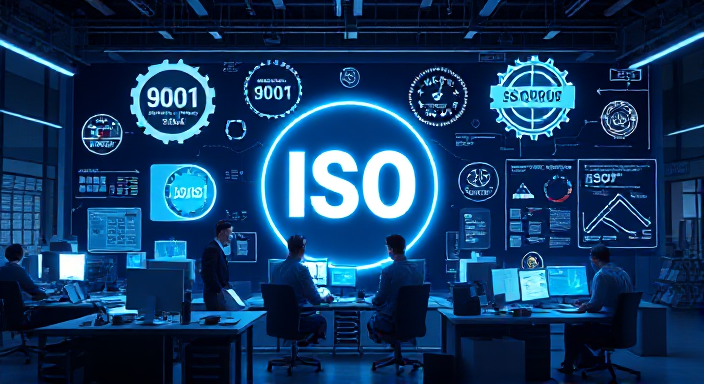
ISO standards, developed by the International Organization for Standardization (ISO), are designed to ensure quality, safety, and efficiency across various sectors. Adopting them can be the definitive step to taking your organization to the next level.
What Are ISO Standards?
ISO standards are international guidelines that define best practices for businesses and organizations. They are designed to improve processes, reduce risks, and ensure that products and services meet globally recognized benchmarks. While not mandatory, implementing them can be key to standing out in a competitive market.
Main Types of ISO and Their Benefits
- ISO 9001 (Quality Management): Perfect for optimizing processes and satisfying customers.
- ISO 14001 (Environmental Management): Promotes environmentally responsible practices.
- ISO 45001 (Occupational Health and Safety): Protects employees by preventing workplace accidents.
- ISO 27001 (Information Security): Provides trust in handling sensitive data.
Adopting these standards not only enhances an organization’s reputation but also facilitates regulatory compliance and opens new business opportunities.
The ISO Certification Process
Obtaining ISO certification requires a commitment to continuous improvement. The steps include:
- Conducting a diagnosis of the current situation.
- Implementing policies and processes based on the standard.
- Training the team.
- Conducting internal and external audits to validate compliance.
Myths and Realities about ISO Standards
- "They’re only for large companies": False. ISOs are adaptable to organizations of any size.
- "They’re too expensive": While requiring an initial investment, the long-term benefits outweigh the costs.
- "They’re just legal requirements": Beyond compliance, they help build a competitive advantage.
